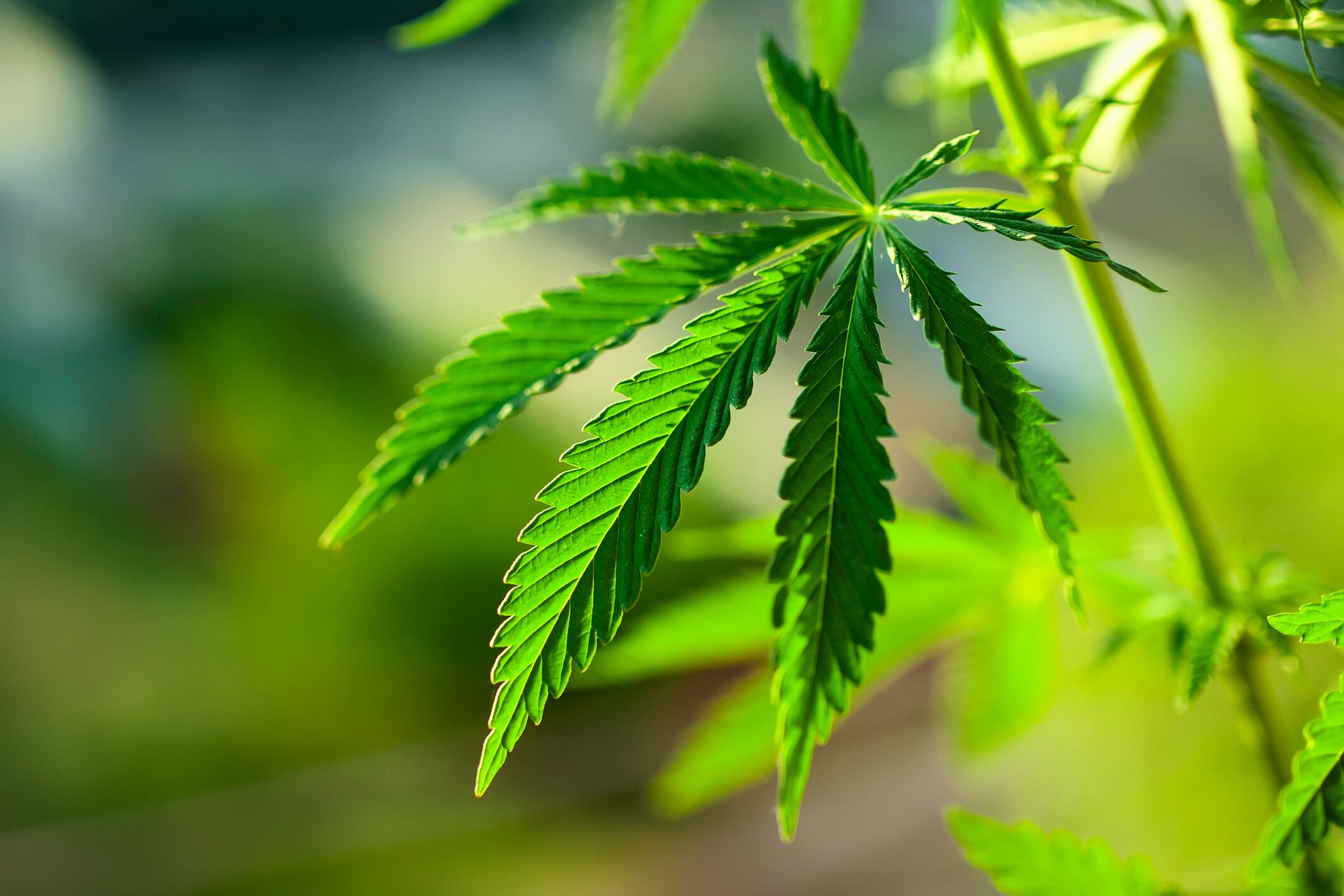In a recent email exchange with the FDA, we posed a direct question: “To be clear, it is NOT legal to sell foods or beverages containing added CBD?” The FDA responded: “That is correct.”
The agency then pointed to a Q&A on its website (updated in June) in which it states that it is not legal to sell foods to which CBD has been added because it has been the subject of an Investigational New Drug (IND) application (by GW Pharmaceuticals, which markets the approved CBD drug Epidiolex for the treatment of seizures associated with two rare forms of epilepsy) and was not marketed in foods prior to that application.
13. Is it legal, in interstate commerce, to sell a food to which THC or CBD has been added?
A. No. Under section 301(ll) of the FD&C Act, it is prohibited to introduce or deliver for introduction into interstate commerce any food… to which has been added a substance which is an active ingredient in a drug product that has been approved under 21 U.S.C. § 355 (section 505 of the Act) or a drug for which substantial clinical investigations have been instituted and for which the existence of such investigations has been made public. There are exceptions, including when the drug was marketed in food before the drug was approved or before the substantial clinical investigations involving the drug had been instituted… However, based on available evidence, FDA has concluded that none of these is the case for THC or CBD. FDA has therefore concluded that it is a prohibited act to introduce or deliver for introduction into interstate commerce any food… to which THC or CBD has been added.”
The FDA also pointed to a series of warning letters issued to companies marketing CBD in supplements that took issue with unauthorized claims about cancer, arthritis and other diseases, but also stated that CBD was not approved for use in foods and supplements.
California Dept of Public Health: CBD products including CBD oil derived from industrial hemp are not allowed in food
In a revised FAQ on CBD published by the California Department of Public Health’s Food and Drug Branch (CDPH-FDB) on July 6, the message was equally explicit: Under the ‘Will NOT be allowed in food’ subheading are the words: “Any CBD products including CBD oil derived from industrial hemp.”
In other words, you can sell marijuana in California for a legal high, but food and beverage products with CBD added (which won’t get you high) are NOT allowed.
Several other states have also echoed this sentiment.
DEA: CBD comes from parts of the cannabis plant that are subject to Schedule 1
The Drug Enforcement Administration (DEA) is equally unequivocal, noting in a Sept 27 press release that, “Marijuana and CBD derived from marijuana remain against the law, except for the limited circumstances that it has been determined there is a medically approved benefit [eg. for Epidiolex].”
While CBD enthusiasts have seized upon a May 22 DEA statement noting that “sterilized seeds, oil or cake made from the seeds, and mature stalks are not controlled under the Controlled Substances Act (CSA),” the DEA also stressed that CBD is not found in meaningful quantities in industrial hemp stalks, seeds or oils, but in the “parts of the cannabis plant that fall within the CSA definition of marijuana, such as the flowering tops, resin, and leaves.”
In other words, CBD is only available in appreciate amounts in hemp flowers, and hemp flowers are subject to Schedule 1 of the Controlled Substances Act. Ergo: CBD is not permitted in foods and beverages.

“I hear people say things like, well company X is doing it, why can’t I? It’s like saying, ‘Well everyone else was speeding, officer.’ That doesn’t matter if you’re one they pull over.”
Todd Harrison, attorney, Venable LLP
Attorney: ‘There’s never been a topic I’ve dealt with that has more misinformation and confusion surrounding it’
So why are so many companies selling foods, beverages and supplements containing CBD given these unequivocal statements from regulators?
According to Justin Prochnow, a food law attorney at Greenberg Traurig that has worked with scores of food, beverage and supplement companies, “There’s never been a topic I’ve dealt with that has more misinformation and confusion surrounding it.”
He added: “There are two main components, the DEA potentially considering it to be a schedule 1 controlled substance and the FDA saying it’s not a permissible ingredient. Right now the definition of marijunana in Schedule 1 says that the flowering tops, resin, and leaves are Schedule 1 controlled substances and we know that [meaningful quantities of] CBD comes from these parts of the plant.”

“I see all these emails going around saying once the Farm Bill passes, CBD is legal in all 50 states – and that’s just not true at all.”
Justin Prochnow, shareholder, Greenberg Traurig
What about the Farm Bill?
He added: “Some people then point to the 2014 Farm Bill and say this specifically allows for industrial hemp for research purposes and that this is excluded from the CSA.
"More relevant is the pending 2018 Farm Bill [the Senate version of which includes provisions from Mitch McConnell’s Hemp Farming Act which would remove industrial hemp from Schedule I of the Controlled Substances Act and place federal regulatory authority of hemp with the USDA. It also asserts a ‘whole plant’ definition of hemp, including plant extracts such as CBD].
“The Senate version of the 2018 Farm Bill has this carve out for CBD, the House version doesn’t and it’s now before joint committee to come up with a final version,” explained Prochnow.
“But even if a Farm Bill with these hemp provisions passes, this doesn’t have any bearing on the FDA’s position that CBD is not a permissible ingredient in a food, beverage or supplement because it was investigated as a new drug by GW Pharma back in 2007.
“I see all these emails going around saying once the Farm Bill passes, CBD is legal in all 50 states – and that’s just not true at all.”
Are complex ‘hemp extracts’ permitted if CBD is not?
But what about the argument that the FDA’s statements only apply to highly purified CBD, but not to complex 'multi-spectrum' hemp extracts?
According to Prochnow: “This still doesn’t get around the issue of whether the DEA thinks your hemp extract containing CBD is subject to Schedule 1.
“Plus, from the FDA’s perspective, if you’re selling a hemp extract as a food or beverage ingredient, then it should be GRAS, and the only GRAS determination we’re aware of is from CV Sciences [which recently issued a press release announcing the self-determined GRAS status of its hemp-derived CBD gold extract. It has not responded to questions from FoodNavigator-USA asking if it plans to submit its GRAS determination to the FDA in order to try and secure a ‘no questions/objections’ letter].”

“A number of companies claim their CBD extract is derived from hemp seeds only, or from the non-flowering parts of the plant. But the only part of the plant that manufactures cannabinoids in any appreciable amount is the flower.
“If a product or company claims a CBD content, or has a non-descript number on the front of the label (usually tinctures), e.g. ‘250 mg,’ but is stating that it is from hemp seeds and/or hemp stalks and leaves only, it is operating from a different rule book.
"You see these companies with a 50g bottle with the phrase '500mg' on the front. 500mg of what? The company doesn't say 500mg of hemp extract, or of CBD, but consumers are going on social media and saying, 'Oh, that's the amount of CBD on the bottle...'
“With these hemp extracts being called CBD, it’s like a company comes to you with a 2 kilo tub claiming to be L-Glutamine. You’d say, hang on, that’s whey protein, not L-Glutamine, and they say, ‘Well we’ve tested it and it’s 8% L-Glutamine. But that’s not the same as pure L-Glutamine powder."
Anthony Almada, founder and president, IMAGINutrition
I tell companies that in my opinion there is no black and white answer and it’s a case of deciding what your risk tolerance is
So what does Prochnow tell food and beverage companies interested in getting into this space?
“I’m getting half a dozen to a dozen inquiries on the regulatory status of CBD a week," he claimed.
"In the however many years I’ve been practicing in this area, I’ve never had a topic that I get more questions about on a daily basis. And they’re not from CBD suppliers, they’re from conventional food, beverage and supplement companies.
“I tell them that in my opinion there is no black and white answer and it’s a case of deciding what your risk tolerance is.”
What enforcement action could the FDA take?
The FDA has sent out warning letters over CBD, but it hasn’t gone further and sought injunctions to seize CBD products (yet) noted Prochnow.
“[FDA official] Bob Durkin was at the Natural Products Association annual conference in June and he basically said CBD is not a permissible ingredient, but that being said, we’re an agency of limited resources and we’re focusing on safety issues and disease claims.
"He didn’t say this, but some people took away from this that if you’re not making disease calms, you are at low risk [of FDA enforcement].”
What happens if the Farm Bill passes with a carve out for industrial hemp and CBD?
So what would actually provide some clarity for industry at this point?
Says Prochnow: “If the Farm Bill passes and there’s a carve out for industrial hemp and CBD, that takes away the DEA side of things [because industrial hemp and CBD would be descheduled].
"Then the industry could try and get the FDA to pass a special resolution that says even though CBD was investigated as an IND, we’ll allow it as an ingredient.”
Attorney: Once the Farm Bill passes, industry could petition the agency to permit CBD to be marketed as a food ingredient
Todd Harrison, an attorney at Venable who has also been trying to help clients navigate the CBD minefield, told FoodNavigator-USA that this was a sensible course of action for the industry:
“Once the Farm Bill passes [assuming the final version includes the hemp/CBD carve outs], you could petition the agency to permit CBD to be marketed as a food ingredient, but we’ve got to wait until the Farm Bill passes, because FDA won’t consider this until it’s unscheduled.”
But everyone else is speeding, officer…
He added: “Right now, we’ve got all these companies marketing CBD products making remarkable and unsubstantiated claims, and if you claim that your CBD is from the stalk or seed, fine, that’s a defense, but responsible scientists will tell you that CBD primarily comes from the flower, and so it’s a Schedule 1 substance.
“I hear people say things like, well company X is doing it, why can’t I? It’s like saying, ‘Well everyone else was speeding.’ That doesn’t matter if you’re one they pull over.”
Enter the class action lawyers
Asked about FDA enforcement activity, Harrison agreed that the agency has not been particularly aggressive to date, but said that could change very quickly if a child consumed a CBD product that also had trace levels of THC (the part of the cannabis plant that gets you high), had a bad reaction, and exposed the fact that not every company even knows what’s in its CBD products, never mind if they confer any health benefits.
“If that happens, the FDA will come down on this industry like a ton of bricks…"
The other thing this industry has to worry about is class action lawyers, he added.
Asked why plaintiff’s attorneys haven’t already piled in given the apparently fertile ground here, he speculated: “They’re probably just waiting for bigger players to come in.”
Vote Hemp: DHHS says CBD should not be classified under Schedule 1
However, Eric Steenstra, president of hemp advocacy group Vote Hemp, told FoodNavigator-USA that, “The DEA continues to ignore the simple fact that industrial hemp produced under the 2014 Farm Bill [to have less than 0.3% per dry weight of THC –the substance in cannabis that gets you high] is not controlled as marijuana.”
He also pointed to a May 2018 letter sent by the Department of Health & Human Services to the DEA in May 2018 that said CBD should be controlled under Schedule V of the Controlled Substances Act.
Schedule V is the least restrictive category, designed to cover substances deemed unlikely to cause harm, abuse, or addiction, whereas drugs in Schedule I (where CBD currently sits as a component of marijuana) are supposed to have no recognized medical value and a high potential for abuse.
“The World Health Organization’s expert committee on drug dependence also recently said that CBD should not be placed under international drug control as the substance was not found to have psychoactive properties, and presents no potential for abuse or dependence,” noted Steenstra.
Anthony Almada: Every extract is chemically different
But why are food and beverage companies using CBD in the first place, and is there any health benefit to consuming small quantities of CBD in foods and beverages?
Right now, we don’t even know what’s actually in half the foods and supplements on the market marketed as containing ‘CBD,’ never mind whether they confer any benefits in the forms and dosages used, argued Anthony Almada MSc, FISSN, founder and president of IMAGINutrition, Inc., a nutritional technology consultancy.
“Hemp flowers contain dozens of naturally occurring active ingredients with distinctive ‘shapes,’ including some terpenes,” said Almada, who co-leads a new trade organization called The Council for the Science and Innovation of Cannabis and Cannabinoids (C-SICC) focused on the applied chemistry and biology, and intellectual properties related to, Cannabis and cannabinoids.
“But virtually all the clinical studies done with ‘CBD’ have used one shape of CBD [CBD and THC can occur in four potential shapes, or chemical forms, in differing ratios].
"Every extract is chemically different and I’m not aware of any commercial, non-pharmaceutical products where the shape of the CBD is known or tested in each proprietary blend,” added Almada, who has founded a company (Cannomyx, LLC) developing consumer and companion animal/equine goods “designed around an axis of a chemo-defined (THC undetectable) extract of hemp, with two university collaborations in place and two exceptional manufacturing partners based in the EU.”
Imprecision and incompetence
He added: "Do these 'full spectrum' extracts interact with drugs, are they stable at the end of the shelf life? Where do the extracts come from and what's in them, and if they are near pure CBD, where did this come from? Was it synthesized chemically in China? How much is in there? Is it safe? Is it lawful? Where are these brands even getting their insurance from? If there's a problem or a lawsuit and they're asked for safety studies, what will they say?
“[At Cannomyx], we are aiming to create an incrementally evidence-based brand, with scientific rigor that is present in but only a few select pharma companies e.g. GW Pharma, InSys, and Nemus Biosciences (the latter two using synthetic cannabinoids).”
He also pointed out that while industrial hemp is supposed to have less than 0.3% THC, “Recent studies conducted by the US FDA, and numerous other university studies, have shown that some products claiming ‘No THC,’ do indeed have THC, despite having certificates of analysis. It's a shocking testament to the incompetence and imprecision that is at the centerpiece of the axis of this testing industry."
It's total anarchy out there
As for dosages, said Almada, studies examining CBD’s impacts on anxiety, Crohn’s disease, nicotine addiction or other health conditions include anything from 100-1100mg of CBD a day, an amount that would be “untenable” to use in food and beverage products.
"Say it's got 1mg or 5mg [of CBD]. Is that going to do anything? There's nothing to suggest it would."
He added: “Ignorance is amok. There’s no one authoritative website or person, so everyone’s a guru, and not even the investors are asking the right questions. It’s total anarchy.”

